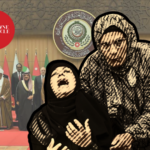Palestine Papers: The Palestinians’ ‘Generous Offer’
By Ramzy Baroud
As Palestinians are becoming increasingly confident about the authenticity of the Palestine Papers – 1,600 leaked documents that Al Jazeera began publishing on January 23 – they can also find little to be proud of in their contents.
According to Palestinian political commentator Mazin Qumsiyeh, the PA’s chief negotiator, Saeb Erekat “comes out basically pleading and begging sometimes and other times using the presence of Hamas, Hezbollah and Iran to try and convince (American and Israeli) officials.” If the conduct of PA officials is not outright betrayal of the rights of their people, then it is, at best, degrading political groveling in exchange for factional gains.
Others have convincingly argued that such demeaning behavior is also indicative of the true nature of the negotiations. Palestinians are, in fact, the party desperate for a peace agreement, while the Israelis insist on arrogantly refusing all Palestinian initiatives – which often even surpass Israel’s and the US’s declared expectations. “The documents put to death the idea that Israel has no Palestinian ‘partner for peace,” argues US author and professor, Stephen M. Walt. They also “expose the bipartisan and binational strategy that Israel and the United States have followed under both Bush and Obama: to keep putting pressure on the Palestinians to cut a one-sided deal.”
The leaked documents – comprising mostly of Palestinian accounts of numerous meetings between Israel, US and Palestinian Authority officials – truly represent a convincing, and, in my view, a final argument against the sham dubbed the ‘peace process’. The so-called process, which commenced with the original declaration of principles in Oslo in 1993, has turned into a secretive barter between a rejectionist, but unified Israeli-American front and Palestinian officials who are largely focused on ensuring American aid and defeating their political rivals.
What is particularly odd is the fact that while Palestinian negotiators were conceding most of the Palestinian rights in occupied East Jerusalem, brazenly giving away the right of return for refugees, and offering territorial concessions to accommodate most of the illegal Jewish settlements in the West Bank, many in the American media were still talking of Palestinian failure to respond to Israel’s historic concessions. The Israeli generosity ruse had begun many years ago – back in the Henry Kissinger years when Arabs were constantly paraded for failing to live up to Israeli and American overtures. But the ruse was greatly cemented following the July 2000 collapse of peace talks between then Israeli Prime Minister, Ehud Barak and late Palestinian leader Yasser Arafat. Barak’s “generous offer” – since proven untrue – continued to haunt Palestinians, who were derided for their supposed political inflexibility and “Arafat’s recalcitrance” (L.A. Times editorial, April 08, 2002).
Now Al Jazeera has revealed and verified hundreds of documents, spanning from 1999 to 2010, which show that the Palestinians’ generosity was truly extraordinary and far-reaching, if not a cause of utter shame for many of those involved.
The Palestine Papers revealed much about the skewed nature of the relationship between two parties who are purportedly in a state of conflict. As it turned out, the Palestinian leadership seemed to negotiate and offer the very opposite of what the Palestinian public truly desire.
According to one leaked document, Saeb Erekat gave away most of Occupied East Jerusalem, even as Israelis insisted on not yet discussing Jerusalem. On June 30, 2008, in a meeting that included Tzipi Livni, then Israel’s Foreign Minister and Ahmed Qurei, top Fatah official and former PA Prime Minister, Erekat declared: “It is no secret that on our map we proposed we are offering you the biggest Yerushalayim (the Hebrew word for Jerusalem) in history.”
Erekat’s personal offer was an extension of one proposed by Qurei himself, in a meeting two weeks earlier. Qurei “proposed that Israel annexes all settlements in Jerusalem except Jabal Abu Ghneim (Har Homa). This is the first time in history that we make such a proposition; we refused to do so in Camp David.” To further convince Israeli officials, Erekat “went on to enumerate some of the settlements that the PA was willing to concede,” according to Gregg Carlstrom in Al Jazeera. They include “French Hill, Ramat Alon, Ramat Shlomo, Gilo, Talpiot, and the Jewish Quarter in Jerusalem’s old city. Those areas contain some 120,000 Jewish settlers.”
As for Haram al-Sharif, or the Noble Sanctuary – the third holiest of Muslim sites – Erekat offered ‘creative’ solutions, such as placing the Palestinian Muslim shrine under international supervision – thus ceding almost complete control over the occupied city.
This is barely the tip of the iceberg. The compromises are plentiful and they blatantly contradict international law, Palestinian national aspirations, Arab consensus, and even the declared official position of the Palestinian Authority itself.
The Palestine Papers also confirm that both sides are on more or less on the same page regarding the Palestinian people’s right to return, agreeing that such a right will not be carried out in any meaningful way. In an October 21, 2009 meeting with US diplomat and Special Envoy to the Middle East, George Mitchell, Erekat stated: “Palestinians will need to know that five million refugees will not go back. The number will be agreed as one of the options. Also the number returning to their own state will depend on annual absorption capacity.”
The documents reveal much more, including, for example, that the PA’s strategy in crushing political opposition was the handy work of Britain’s intelligence service, MI6. This, of course, hardly compares to the American role, which has held Israeli interests and priorities as the backbone of American involvement in the talks.
The leaked documents have permanently damaged whatever little credibility the Ramallah-based authority still enjoyed among Palestinians. How much longer the PA can continue to serve any purpose is now unclear. What is certain, however, is that its purpose does not include exacting Palestinian rights or preserving the national integrity of the Palestinian people and the territorial integrity of a Palestinian state.
The Palestine Papers have made this very clear, and lashing out at Al Jazeera – as the PA is now doing – will change nothing.
– Ramzy Baroud (www.ramzybaroud.net) is an internationally-syndicated columnist and the editor of PalestineChronicle.com. His latest book is My Father Was a Freedom Fighter: Gaza’s Untold Story (Pluto Press, London), now available on Amazon.com.










































0 Comments